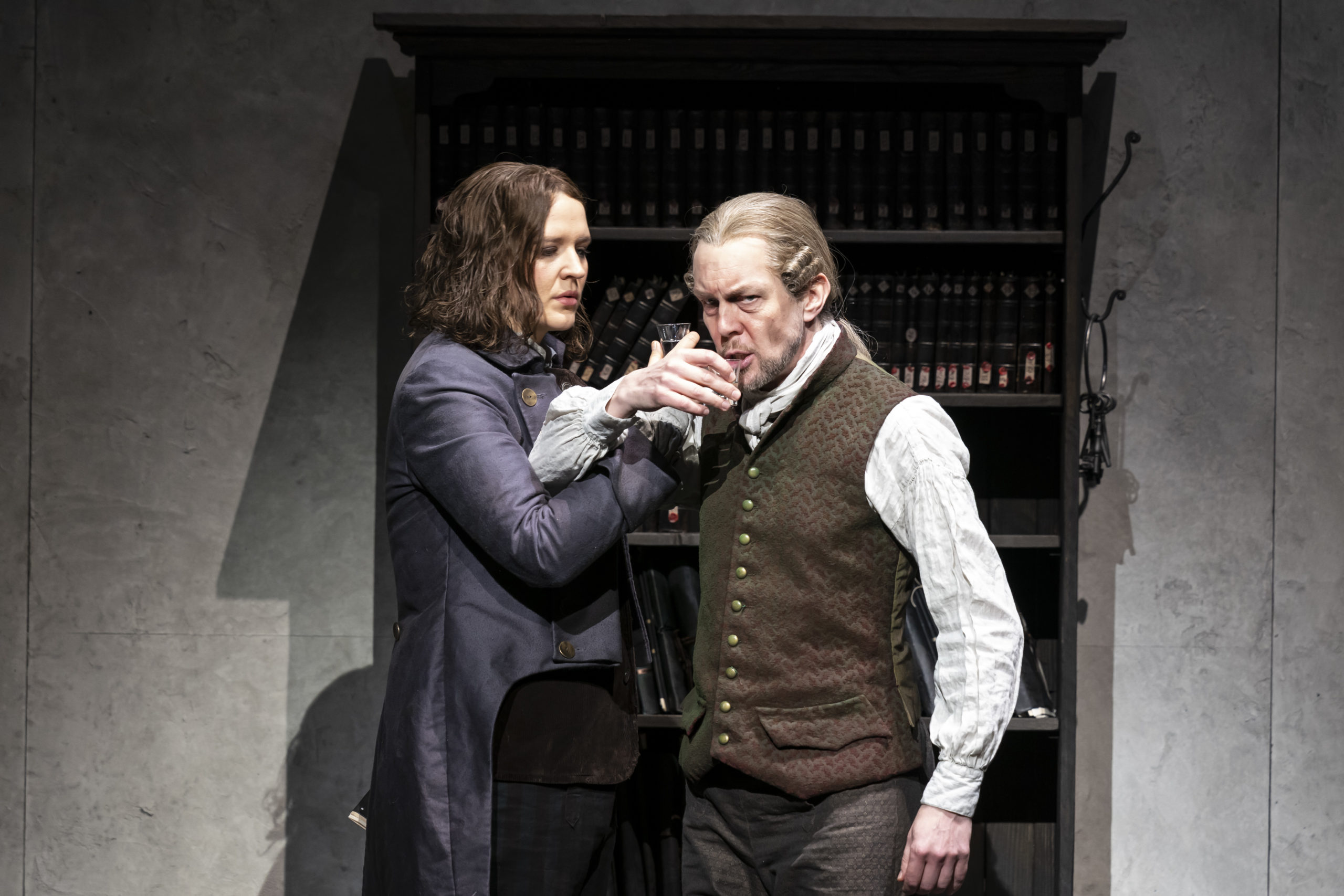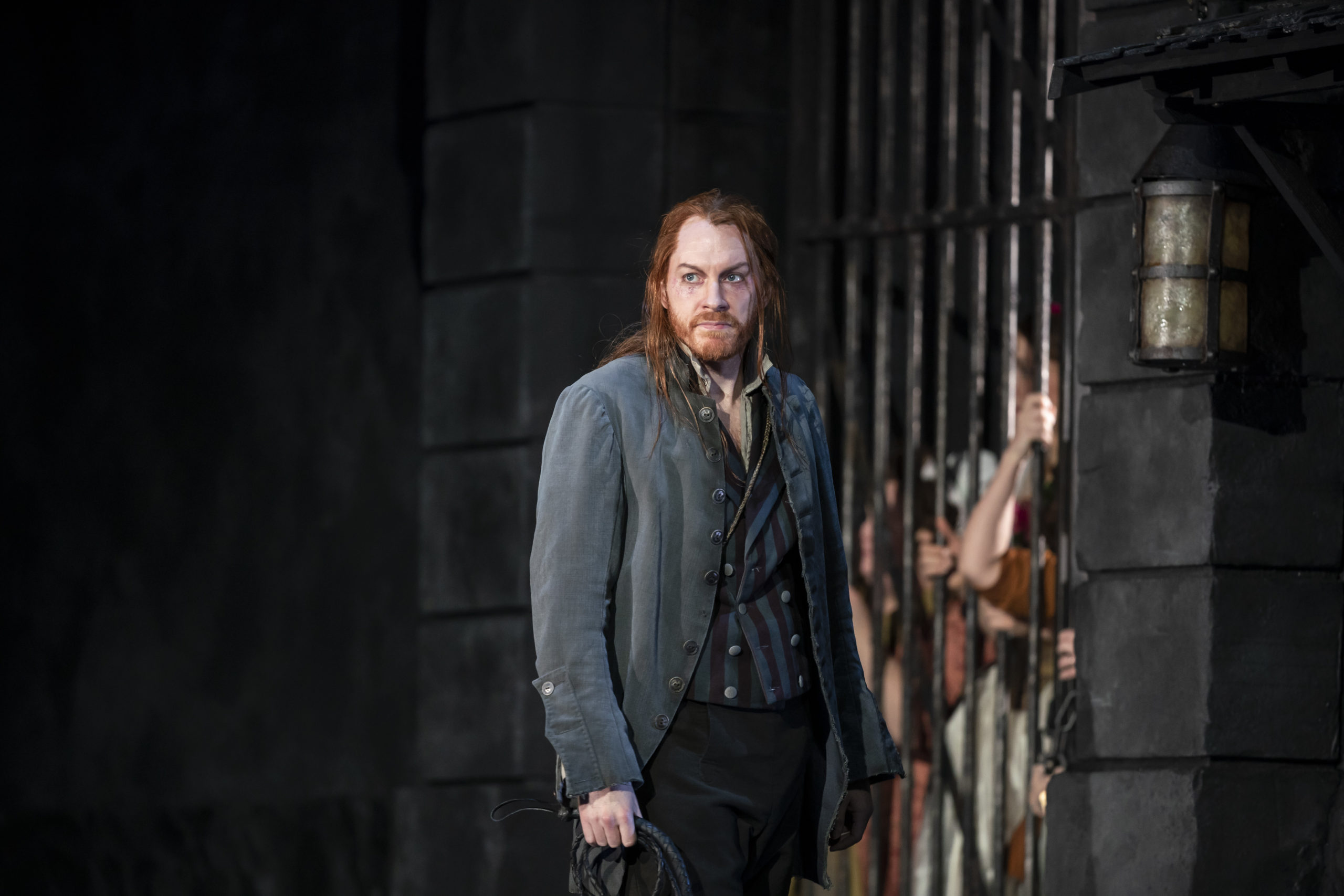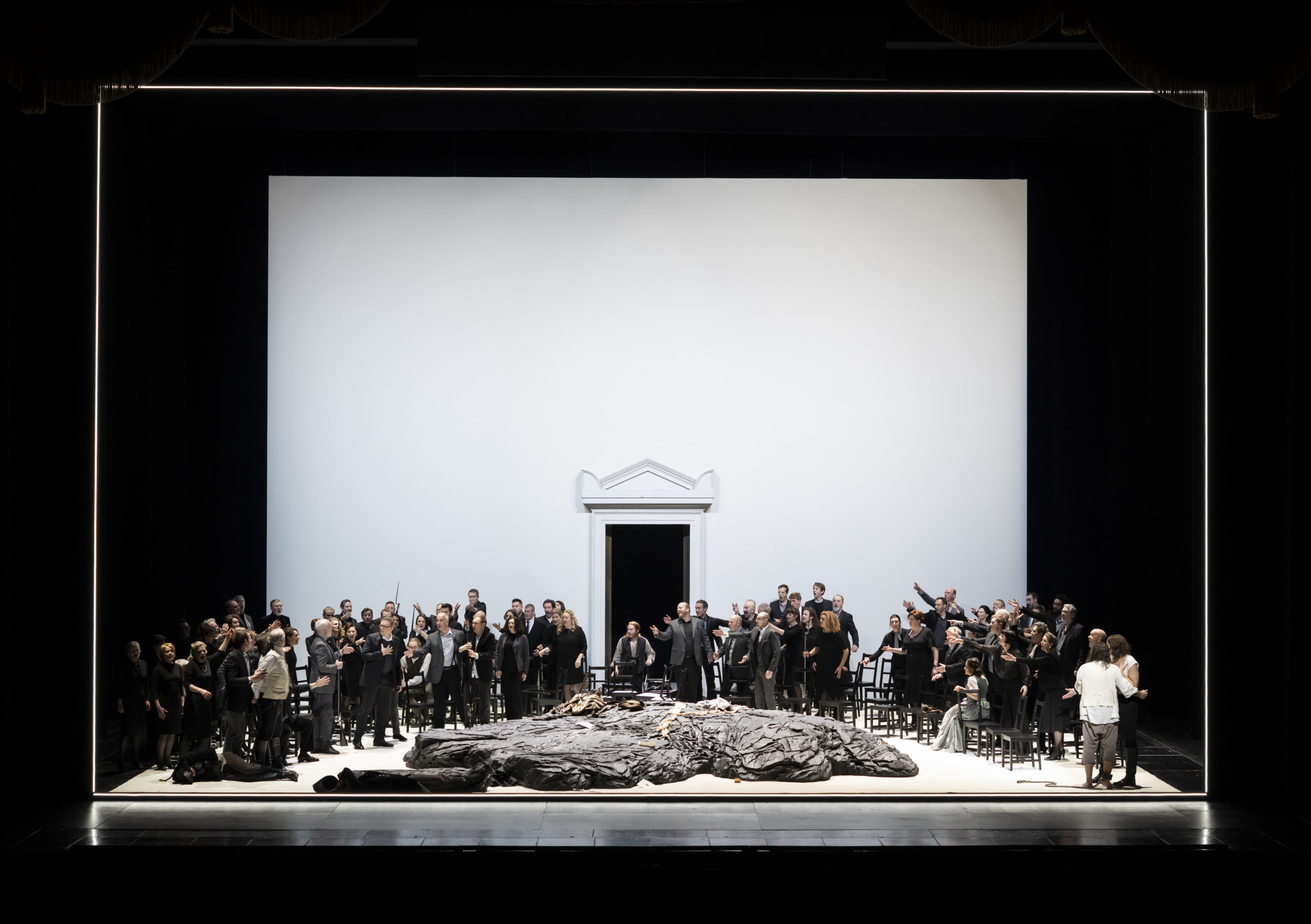“Fidelio” by Beethoven, from Covent Garden,
In 2002, I attended a performance of “Fidelio” at Glyndebourne and it was simply spine-tingling – towards the end I could feel the hair standing at the back of my head. I’ve never experienced anything like it in the opera house, not even with the operas of Mozart that I revere. “Fidelio”, Beethoven’s only opera, supposedly based on an incident which occurred during the French Revolution, has some of the most powerful and most moving music in all opera. It’s a great hymn to freedom and courage and fidelity and despite its acknowledged flaws, especially in Act 1, it’s one of the towering peaks of opera. Denis Forman speaks for many with the following: “It is Beethoven’s ability to make his absolute music to pack such a dramatic punch that lends such enormous power to ‘’Fidelio’’: his passionate advocacy of liberty, his hatred of tyranny speak to us directly through the music, making ‘Fidelio’ one of the greatest of all operas.  “Fidelio”premiered at the Theater an der Vien in Vienna, on November 20th, 1805, with Beethoven as conductor . At the time, Vienna was full of French soldiers and many of its citizens had fled the city. The opera only ran for three performances. Its composer did some editing and, six months later, in March 1806, a second version was staged – and received a somewhat better reception. However, Beethoven soon got to “revising, cutting, patching and rewriting” and, eight years later, in May 1814, he came up with his third and final version – the “Fidelio” that’s usually staged today. To round off the ’saga’, he composed four different overtures:- Leonore No. 2 (’05), Leonore No. 3 (’06), Leonore No. 1 (’07) and Fidelio (’14) – the overture usually played before performances of the opera today. If that’s not confusing then … It’s a Singspiel, meaning that there’s spoken dialogue between the arias. Near Seville, in mid-eighteenth-century Florestan is unjustly imprisoned by the tyrannical Pizarro. The prisoner’s wife, Leonore, dresses as a man and adopts the name Fidelio. She is taken on as a worker in the prison. Soon, the jailer’s daughter, Marzelline, falls in love with ‘her – a complicating factor! She overhears Pizarro instructing the jailer to murder Florestan and to bury him secretly. And the story of her devotion and heroism as she attempts to rescue her husband is told in some of the most incandescent music ever composed!
“Fidelio”premiered at the Theater an der Vien in Vienna, on November 20th, 1805, with Beethoven as conductor . At the time, Vienna was full of French soldiers and many of its citizens had fled the city. The opera only ran for three performances. Its composer did some editing and, six months later, in March 1806, a second version was staged – and received a somewhat better reception. However, Beethoven soon got to “revising, cutting, patching and rewriting” and, eight years later, in May 1814, he came up with his third and final version – the “Fidelio” that’s usually staged today. To round off the ’saga’, he composed four different overtures:- Leonore No. 2 (’05), Leonore No. 3 (’06), Leonore No. 1 (’07) and Fidelio (’14) – the overture usually played before performances of the opera today. If that’s not confusing then … It’s a Singspiel, meaning that there’s spoken dialogue between the arias. Near Seville, in mid-eighteenth-century Florestan is unjustly imprisoned by the tyrannical Pizarro. The prisoner’s wife, Leonore, dresses as a man and adopts the name Fidelio. She is taken on as a worker in the prison. Soon, the jailer’s daughter, Marzelline, falls in love with ‘her – a complicating factor! She overhears Pizarro instructing the jailer to murder Florestan and to bury him secretly. And the story of her devotion and heroism as she attempts to rescue her husband is told in some of the most incandescent music ever composed!  “Fidelio” demands, above all, a powerful soprano as Leonore, and a roll-call of some of the greatest exponents of the role includes names such as Malibran, Viardot, Flagstad, Nilsson and the Lehmanns, Lilli and Lotte. There are a number of marvellous recordings of the opera, but, for me, the 1962 recording conducted by Otto Klemperer with Christa Ludwig as Leonore and the sensational Canadian tenor, Jon Vickers, as Florestan is matchless – ‘a thing of beauty and a joy forever’. Rupert Christiansen, in relation to post World War Two performances of the opera, states that “those who lived under the shadow of war found the opera profoundly moving and the power of great singers like Lotte Lehmann and Jon Vickers in the roles of Leonore and Florestan is still remembered with awe”. With the great modern tenor, Jonas Kaufman, and soprano Lise Davidsen (she has a marvellous voice, as I heard to such powerful effect a couple of years ago at the Wexford Festival in a poorly-directed Charpentier opera), this live screening could be one of the musical events of the year. And my admiration for the conductor, Antonio Pappano, merely grows every time I see him at the podium.
“Fidelio” demands, above all, a powerful soprano as Leonore, and a roll-call of some of the greatest exponents of the role includes names such as Malibran, Viardot, Flagstad, Nilsson and the Lehmanns, Lilli and Lotte. There are a number of marvellous recordings of the opera, but, for me, the 1962 recording conducted by Otto Klemperer with Christa Ludwig as Leonore and the sensational Canadian tenor, Jon Vickers, as Florestan is matchless – ‘a thing of beauty and a joy forever’. Rupert Christiansen, in relation to post World War Two performances of the opera, states that “those who lived under the shadow of war found the opera profoundly moving and the power of great singers like Lotte Lehmann and Jon Vickers in the roles of Leonore and Florestan is still remembered with awe”. With the great modern tenor, Jonas Kaufman, and soprano Lise Davidsen (she has a marvellous voice, as I heard to such powerful effect a couple of years ago at the Wexford Festival in a poorly-directed Charpentier opera), this live screening could be one of the musical events of the year. And my admiration for the conductor, Antonio Pappano, merely grows every time I see him at the podium.  “Fidelio” from Covent Garden and with an all-round strong cast supported by a fine orchestra well marshaled, has to be a ‘must’ for genuine opera-lovers. It’s not every day we can have such riches laid at our doorsteps. Be there, gan teip” (Jim Ryan).
“Fidelio” from Covent Garden and with an all-round strong cast supported by a fine orchestra well marshaled, has to be a ‘must’ for genuine opera-lovers. It’s not every day we can have such riches laid at our doorsteps. Be there, gan teip” (Jim Ryan).